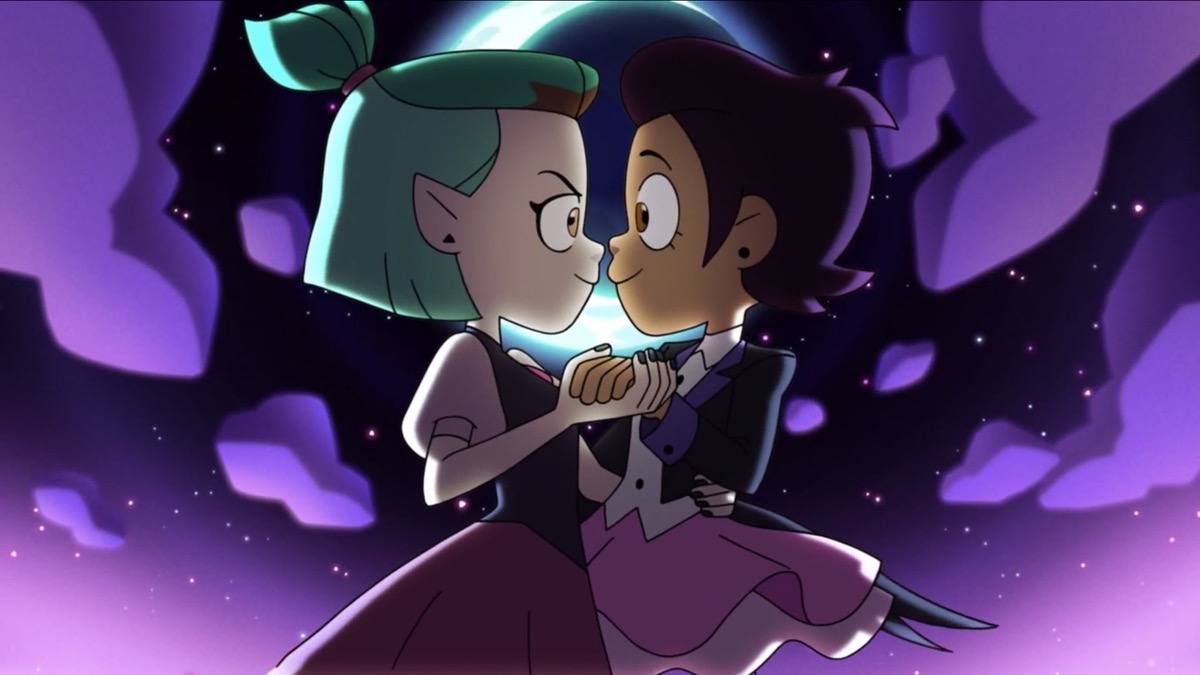The Importance of The Owl House, Signed by a Bisexual Latina
Luz Noceda is an icon.


Disney’s The Owl House is what I wish I had growing up. Before starting this show, I heard whispers of it. I saw photos of Eda, the Owl Lady, in all her grey glory. I saw King plushies that were adorable AF. And I’d sometimes scroll past a picture of the whole cast on my Twitter feed. Somehow I missed out on the fact that the lead was a Latina. Not just that, either. I missed out on the fact that she was a bisexual Latina, like me, on a kids’ show on a major network.
So I dived in, the promise of someone like me at the forefront instead of being ignored, because homophobes are scared their kids aren’t grown enough for it, drawing me into this story. In the beginning, I was expecting the gay, first and foremost. But with all great shows, what matters is building up the story to explore a character’s complexities. So before they were able to explore her queerness, they had to explore who Luz was as a young woman and Latina.
Right off the bat, you learn some really important things about Luz. She’s weird, funny, and doesn’t fit in. She also has big dreams, big ideas, and an imagination that can’t be contained at her school. She’s also Latina. And like me, it’s just a part of who she is. She carries it within her every single day, and you can see bits and pieces of that heritage when her mom speaks Spanish to her and when it slips out in the middle of mayhem or hijinks. It just is.
Making the lead a Latina and normalizing her and her experiences, in the midst of a crazy fantastical adventure, grounds this show. It demonstrates that kids like Luz, well, they’re just like everyone else. Yes, they may speak Spanish and have customs that are different from other kids. But at the end of the day, they’re just kids trying to make it through the day while also trying to find their place in the world, a.k.a. elementary school or high school.
The same thing goes for Luz and her bisexuality. It’s just a part of her. It doesn’t change how weird, funny, and oddball she is. It doesn’t change how much Eda and King love her. And it doesn’t change how her friends Willow and Gus see her. It even doesn’t change how Amity sees her, and she’s the clear love interest of this show. Luz is bisexual and the normalization of her and her experience is the kind of hope I needed as a kid and that I’m proud kids have today.
I honestly can’t help but wonder who I would be as a woman if I had something like The Owl House and Luz Noceda in my life. Because growing up, I didn’t see Latinas in the media I consumed, and I sure as heck never saw any bisexual Latinas, at that. They were a rare unicorn that TV, movies, or books didn’t take the time to invest in. And that spoke a clear message to me that I wasn’t worthy of having stories told about me.
The Owl House makes me feel worthy. It makes me feel seen. And if it can do that to a grown woman, imagine what it can do for a kid? Imagine how their life can be changed, from top to bottom, if they had it cemented in their minds that being queer is ok and being a Latina is ok? This is why representation matters across the board and why this show deserves the same accolades that heavy hitters like She-Ra and the Princesses of Power of Steven Universe have gotten in the past.
This is the future of representation, and the future is bright because of The Owl House and young women like Luz Noceda.
(image: Disney)
Want more stories like this? Become a subscriber and support the site!
—The Mary Sue has a strict comment policy that forbids, but is not limited to, personal insults toward anyone, hate speech, and trolling.—
Have a tip we should know? [email protected]